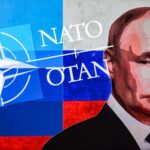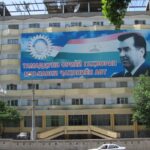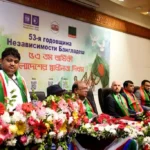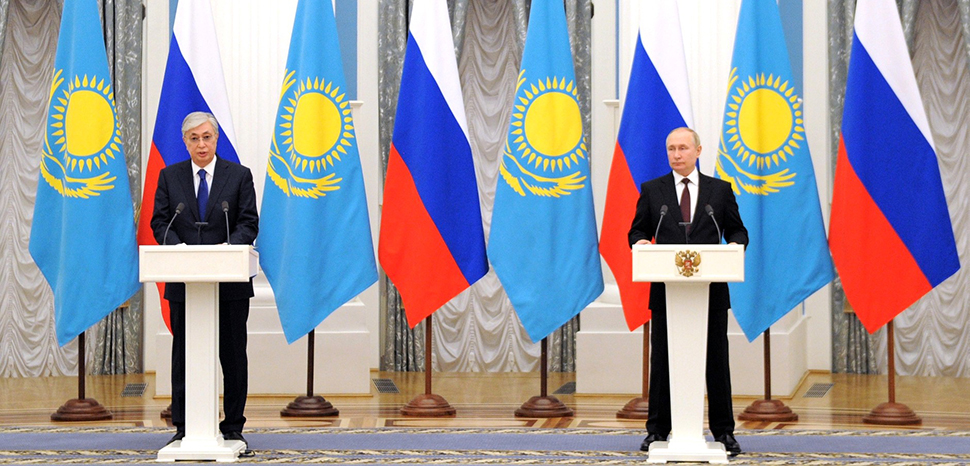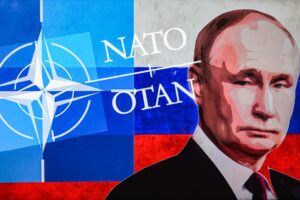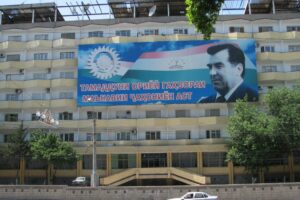It has been a turbulent year in Russian-Kazakh relations. Russia’s oil rich neighbour, which straddles central Asia and eastern Europe, started the year by asking for Russia’s help in restoring stability after protests erupted in its major cities.
But Vladimir Putin’s invasion of Ukraine has affected their relationship. The president, Kassym-Jomart Tokayev, has refused to recognise Russia’s annexation of territory in Ukraine, distancing his country from its long-time ally.
Russia, now isolated from the west, needs friends like never before. But repeatedly, we have seen its public figures hurt Russia’s own interests with loose talk that negatively resonates in Kazakhstan.
Two days after Tokayev won reelection in November, Russian political expert Dmitry Drobnitsky went on a popular talk show and described Kazakhstan in the same terms the Russian establishment uses to justify the war in Ukraine: “There, too, Nazi sentiments can begin, as in Ukraine. And we have a border [with Kazakhstan], and there are many Russians there.”
This drew protest from Kazakhstan, and Kremlin spokesman Dmitry Peskov was quick to distance the Russian establishment from the remarks which he said “do not reflect the official line of the Kremlin”. But for much of the Kazakh public, what is said on Channel One reflects what Russia really thinks.
For years now it has seemed as if hardly a few months pass without some public figure in Russia stating that Kazakhstan should be grateful to Moscow for its independence. But this year such pronouncements have only become more frequent.
In August, former Russian president and deputy head of Russian Security Council, Dmitry Medvedev, reportedly posted – before deleting – remarks to the effect that Kazakhstan, like Ukraine, was an “artificial state” that had instituted “genocidal policies” towards ethnic Russians living there: “And we do not intend to turn a blind eye to this,” he said. “There will be no order until the Russians get there.” Medvedev was quick to point that his account has been hacked.
A few months earlier, Kazakhstan’s decision not to hold a Victory Parade celebrating the Soviet defeat of Nazism in the second world war drew a scathing response from prominent TV presenter Tigran Keosayan. Keosayan, who is married to the RT editor-in-chief Margarita Simonyan – a key Putin supporter – said on his YouTube channel: “Kazakhs, brothers. What is with the non-gratitude? Look at Ukraine carefully, think seriously. If you think you can continue to be such sly asses and there won’t be any consequences, you are mistaken.”
Tokayev raised the issue with Putin at the St Petersburg Economic Forum, saying that “I would like to express some complaints about the statements of a number of Russian deputies, absolutely incorrect statements about Kazakhstan, inaccurate statements, I would say, of journalists and even cultural figures.”
This self-inflicted wound can make you wonder whether the Kremlin is fully in control of the Russian narrative. The common wisdom is that Russian media, especially the ubiquitous television, is tightly stage managed. But that seems to be changing as a result of the war in Ukraine. And these provocative statements reflect a stressed atmosphere in Moscow where assertive jargon is popular and opinions previously held behind closed doors are thrust unfiltered into the public domain.
National identity
Meanwhile, Kazakhstan has been undergoing a cultural revival, adopting a new non-cyrillic alphabet, exploring its national story and talking more openly about negative aspects of its Soviet past. So what might seem like minor examples of insensitivity on the part of Russian public figures can – and do – trigger strong emotions among ethnic Kazakhs.
In this febrile atmosphere, emotions run high. There have been calls to ban Russian TV channels from Kazakhstan’s airwaves. And some public figures supporting the war – such as singer Polina Gagarina, have found themselves “cancelled” – literally in Gagarina’s case after a scheduled concert in Almaty in November was called off after online protests over her support for Putin’s war in Ukraine.
If the Russian political establishment has reacted awkwardly to Kazakhstan asserting its identity, Tokayev is managing the situation better. His decision not to recognise the annexation of the four Ukrainian provinces played well at home, but he was careful to visit the Kremlin soon after his reelection to reaffirm his country’s relationship with Russia.
Meanwhile thousands of Russians have flooded into Kazakhstan to avoid conscription. And Tokayev recently signed off on a modernisation plan for Kazakhstan’s military doctrine to strengthen its armed and security forces.
Mutual dependence
Both sides need each other, but Russia’s needs are more pressing. Moscow needs Kazakhstan’s neutrality. It wants a country that will not vote against it at the United Nations and that will participate – at least nominally – in Russia-led regional groups. Moscow also needs transit routes to export grain and fertilisers at a reasonable cost to China, Central Asia and Afghanistan. It needs a neighbour that will not become a haven for the political opposition, or try too hard to enforce western sanctions.
For Kazakhstan, benefits from the new status quo are considerable, and it can drive a hard bargain. It has already welcomed Russian businesses fleeing sanctions and mobilisation. With Russia weakened, Kazakhstan can claim to be the strongest country in Eurasia, a natural partner for both east and west, backed by a security pledge made by China’s Xi Jinping in September.
Kazakhstan is now free to pursue a “multi-vector” foreign policy, seeking friends on all sides, as Russia’s influence in the region diminishes.
Any rational actor in the Kremlin should appreciate an unwavering neighbour pursuing pragmatic, cooperative ties. But as its war shows, Russia can be its own worst enemy. By baiting an awakened Kazakh identity by allowing misguided discourse by its politicians and media proxies, Moscow has created a problem where none existed.
Source : Sofrep


